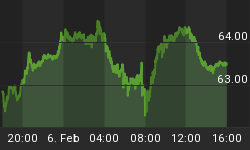My best friend in high school, David Wise, wrote an interesting OpEd for the Baltimore Sun two days ago. I do not agree with all of it, but he does hit the nail on the head of the critical issue as to who is to blame for the default impasse.
Wise says Obama must not allow a default.
I happen to think that a default would not be catastrophic. However, that debate is moot because the odds of a default are a million-to-one, if not higher. So let's get down to the critical paragraph.
Congress has the power of the purse and the power to tax under Article 1, Section 8 of the Constitution. If Congress authorizes too much spending or permits inadequate revenue generation, it hardly makes sense that it can override the results of the exercise of these Constitutional powers by a mere statute, any more than a person who runs up credit cards purchases could try to avoid responsibility for debts by telling the credit card company that the amount exceeded some artificial total amount of debt that he has vowed not to exceed. Alan Greenspan once said in an interview: "Why do we have a debt limit in the first place? We appropriate funds, we have tax law, and one reasonably adept at arithmetic can calculate what the debt change is going to be."
Ultimate Irony
Please note the irony. Congress has full and complete constitutional power to enact spending, and it does that "too well".
Congress then attempts to enforce a ceiling on the national debt (debt that is 100% caused by Congressional overspending).
Obamacare vs. the Debt Ceiling
Obamacare is a bad bill, and I welcome attempts to modify or delay it, but given that Boehner is Prepared to Cave-In to Obama, and given that Obama is not going to sign any bill he does not like, political grandstanding is going to do nothing except make Republicans look foolish.
Tax Cuts and the Deficit
One can praise Republicans for cutting taxes. But one cannot praise Republicans for failing to cut expenses at the same time.
Wise writes ...
In 2001 the Republicans took control of the White House and both houses of Congress. At that time the U.S. budget was in surplus and the entire national debt was projected to be paid off. The Republicans proceeded to run eight straight deficits -- gutting revenue collection while increasing spending -- on the way to generating the first trillion-dollar budget deficit under President George W. Bush and leading the economy into the worst financial crisis since the Great Depression -- all factors with which the U.S. economy is still contending.
Who Broke Washington?
It is debatable whether the U.S. budget was really in a surplus state when Bush took office. I suggest the surplus was an accounting gimmick that ignored unfunded liabilities.
Regardless, the first trillion dollar deficit did indeed occur on George Bush's watch.
And Bush wasted trillions of dollars on military spending and wars. The country is still paying the price for Bush's war-mongering stupidity.
We also pay the price for a preposterous Medicare bill passed under president Bush that added $500 billion in debt to the books. And the way that law was passed offers insight into what is truly wrong with Congress.
"The Hammer"
Please consider Who Broke Washington? 'The Hammer' Checked Every Sleazy Box
Zero-sum gain: DeLay represents a my-way-or-the-highway mind-set that is so common and corrosive in politics today. Nicknamed "The Hammer," he nurtured a reputation for enforcing party discipline and retribution against anybody who defied George W. Bush's White House. He was known to threaten disloyal Republican lawmakers: Cross him and he'd find and support GOP primary foes. To win, there seemed to be no lever that DeLay wouldn't pull. Even bribery. The House ethics committee unanimously admonished DeLay in 2004 because he "offered to endorse Representative [Nick] Smith's son in exchange for Representative Smith's vote in favor of the Medicare bill."
Runaway entitlements: That Medicare bill extended prescription drug coverage, adding more than $500 billion to the nation's debt-ridden books. President Bush thought that was a small price to pay for a reelection issue. The administration suppressed a report on the costs, an act the Government Accounting Office later called illegal. When the House voted on the bill, Democrats seemed to have defeated it after the 15-minute voting period. But DeLay froze the legislative clock for three hours while his team strong-armed lawmakers, an extraordinary breach of protocol.
Both Parties to Blame
The above article started off with "Tom DeLay didn't break Washington, but he's a living symbol of what broke it."
And that is precisely correct. Yet, Republicans blame everything on Obama and Democrats blame everything on Bush.
If you expect partisan politics out of me, you expect the wrong thing.
I suggest Obama and Bush are among the worst presidents in history. I also suggest the congressional approval rating of 19% is that low for a reason: Spending is out of control, and both political parties are to blame.















